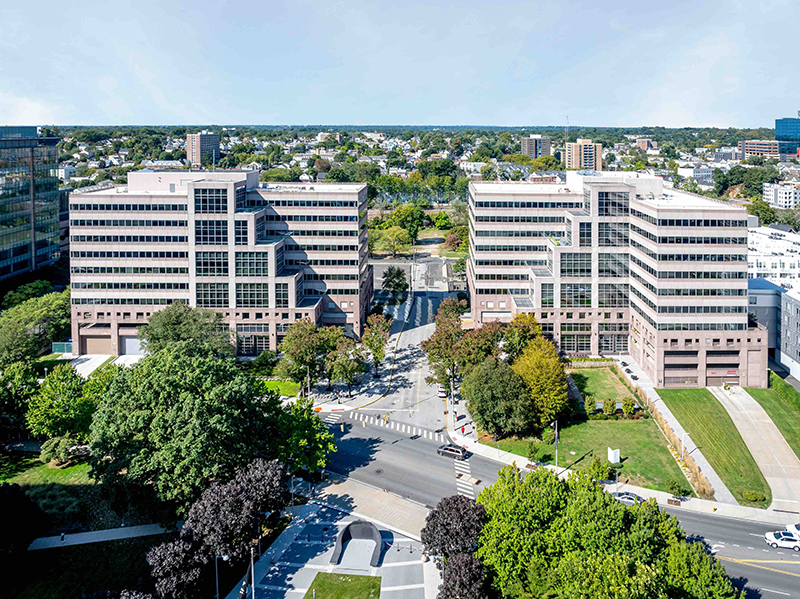Houlihan Lawrence First Quarter Commercial Market Report on the Fairfield County market
Greenwich, CT The Fairfield County office market continued to have more office space available than absorbed in Q1 2020 while the Greenwich market improved. However, the picture is rapidly changing, especially for retail space, as the market adjusts to the COVID-19 crisis, according to the Houlihan Lawrence First Quarter Commercial Market Report for Westchester County.
Consistent with the prior quarter, the Fairfield County office market, in aggregate, continued to demonstrate an imbalance during Q1 2020, with more space offered to the market than absorbed. Average rental pricing for office space appears to have improved, suggesting that mix of deals is skewed toward class A properties offering amenities and newer construction which tend to command a higher price. These properties are also most likely to retain tenants and cash flow during the downturn. COVID-19 is likely to impact class B and class C properties disproportionately. The Stamford business area and downtown Greenwich, which represent most of the class A space, will likely fare better during the current slowdown. It is also possible that relatively new or updated buildings with state-of-the-art ventilation systems will become more attractive for employers in a post-COVID market.
In contrast with the larger Fairfield County, Greenwich office fundamentals had improved prior to COVID-19 disruptions, with active leasing taking place in the direct and sublet markets. Occupancy increased, and pricing remained stable throughout Q1. A hub for financial services industries, it is possible that the Greenwich office submarket will experience an uptick in office demand after the markets stabilize as financial enterprises, wishing to physically separate large groups, or seeking to have an alternative location outside of New York City, consider Greenwich as a possibility. Other class A markets in Fairfield, such as downtown Stamford, could also become attractive for such a strategy in the post-pandemic world.
Debt and Equity Availability to Continue
The Greenwich commercial real estate market had continued to enjoy the confidence of investors up until the crisis, and we believe debt and equity availability to this market will continue. To wit: Bisnow recently reported a $150-million refinancing for Greenwich Plaza, a two-building office complex located in the CBD (central business district) of Greenwich, CT, which is owned by The Ashforth Company. Ashforth, is using proceeds from the refinancing to redevelop a modern transportation center adjacent to the property, which abuts the Greenwich Train Station. This development is a public-private partnership with the Town of Greenwich, Metro North, and the Connecticut Department of Transportation. According to Greenwich First Selectman, Peter J. Tesei, the Town will be contributing toward the public benefit improvements portion of the redevelopment by transferring to Greenwich Plaza/Ashforth, at project completion, the air rights currently owned by the Town and leased to Greenwich Plaza on the south side of the tracks.
Greenwich Retail Weaker as Tenant Mix Continues to Evolve
Greenwich retail space use remains in flux in a changing market. During the quarter, this market lost tenants at a greater speed than in the last quarter of 2019. There was an uptick in sublet activity suggesting that some prospective businesses were able to find suitable space that was acceptable to their business “as is” and did not require costly investment. Personal service providers, restaurants and fast-casual eateries, were driving new retail leases in Greenwich, and many other areas in the broader Fairfield County, prior to the COVID crisis. These businesses have suffered tremendously throughout the on-going quarantine order, and some of them, are likely to retrench, or disappear, in the near term. Fairfield retail also lost occupancy during Q1. Leasing activity weakened but pricing remained relatively stable. We have observed departures at the Stamford mall as some retail tenants were attracted by the newer, recently opened, SoNo mall.
Retail Adapting to Stay Relevant During Pandemic
Despite the Pandemic caused headwinds, some initiatives by Greenwich and Fairfield restaurants and other service business, such as take-out and at-home service options, have provided these businesses an ability to remain relevant. Others have been experimenting with imaginative on-line approaches to maintain their enterprises and retain customer loyalty. An example is Little Pub, an informal eatery business with locations in Ridgefield, Wilton and Greenwich. The business has been offering family take-out dinners with an on-line ordering and pay system which has become common to restaurants and others in this challenging environment. Another example is Mobile Auto Body 101, a company that brings their auto repair shop capabilities to their customers’ home. A toy store on Greenwich Avenue has established a “contactless toy commerce” with a new on-line store and curb-side pick-up. Another innovative sign of the times is a regional car detailing service that has added services including steam sanitizing the interior of cars, baby car seats and strollers.
Investment Activity Continues to Drop
The level of Fairfield commercial real estate investment activity in Q1 2020 was at a multiyear low. Expect investor appetite to be restrained until financing partners become again active in the market, and investors develop a sense of confidence for asset valuation. It is very likely that interesting investment opportunities will develop soon, and investors should refine their strategies, weighted against their risk tolerance and considering the current environment–and be ready to act decisively when opportunities emerge.
CBRE brokers sale of Stamford Towers - 326,468 s/f Class A office











.png)
